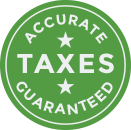What type of housing expense records should clergy be keeping?
Ideally, clergy should keep careful housing expense records to determine whether expenses are greater or less than the annual designation. Records are also important for estimating a reasonable housing allowance for the next year. Original receipts, invoices, canceled checks, charge card records, etc. are all essential. To simplify record keeping, some pastors find it helpful to have one charge…
Does your Church Want to Pay Tax on Employer Parking?
Churches and other historically tax-exempt organizations may need to file federal and likely state income tax returns according to a recently unearthed provision in the newly instituted Tax Cuts and Jobs Act that applies the federal income tax to parking benefits. Hundreds of organizations are now calling for its repeal. Section 512(a) (7) addresses this new…
Is it really the IRS calling on your business?
Many taxpayers have encountered individuals impersonating IRS officials – in person, over the telephone and via email. Don’t get scammed. We want you to understand how and when the IRS contacts taxpayers and help you determine whether a contact you may have received is truly from an IRS employee. The IRS initiates most contacts through…
Why is the second quarter of estimated quarterly taxes only two months?
Estimated taxes used to be paid based on a calendar quarter, but in the 60’s the Oct due date was moved back to Sept to pull the third quarter cash receipts into the previous federal budget year which begins on Oct 1 every year, allowing the federal government to begin the year with a current…
What is the Difference Between FICA and SECA?
Social Security taxes or contributions are collected under the Federal Insurance Contributions Act (FICA) and the Self-Employment Contributions Act (SECA). Many people refer to contributions to Social Security as either FICA or SECA taxes. While FICA and SECA may sound similar, they are just two different ways for the government to collect Social Security and Medicare taxes. The big…
How to Write a Church Donor Acknowledgement Letter
The IRS sets out that acknowledgments must be provided “in writing, at the time of solicitation or when the payment is received, and in a way that will come to the attention of the donor,” according to IRS Publication 1771. For the letter to be considered “contemporaneous” with the contribution, “a donor must receive the acknowledgment by…
What Is Self-Employment Tax?
When a church hires a worker, one of the initial decisions that must be made is whether to treat the worker as a minister, non-minister employee or contractor. This decision may seem insignificant, but it has huge implications when it comes to payroll. Ministers have what is commonly referred to as “dual tax status.” For…
Can a church offer a Health FSA without a medical plan?
If the church has a group health plan, you may want to consider a Health Flexible Spending Account (FSA). A health flexible spending account (FSA) is a type of tax-advantaged medical account that reimburses employees for eligible health care expenses that are not covered by their health plans. Both employees and employers can contribute to a…
How to Value Noncash Charitable Contributions
If you donate property to a nonprofit such as clothing, electronics, books, or furniture, you need to determine how much it is worth when you donate it. The basic rule is that you may deduct no more than the property’s “fair market value” at the time of the donation. But fair market value can be…
Is it Vacation or Paid Time Off?
Traditionally, churches had offered separate paid time off benefits to employees, such as paid vacation, sick leave and personal days. However, in the past decade, many churches have moved to a more flexible Paid Time Off or “PTO” benefit that incorporates all policies into one all-inclusive PTO plan. The debate as to whether churches benefit…






